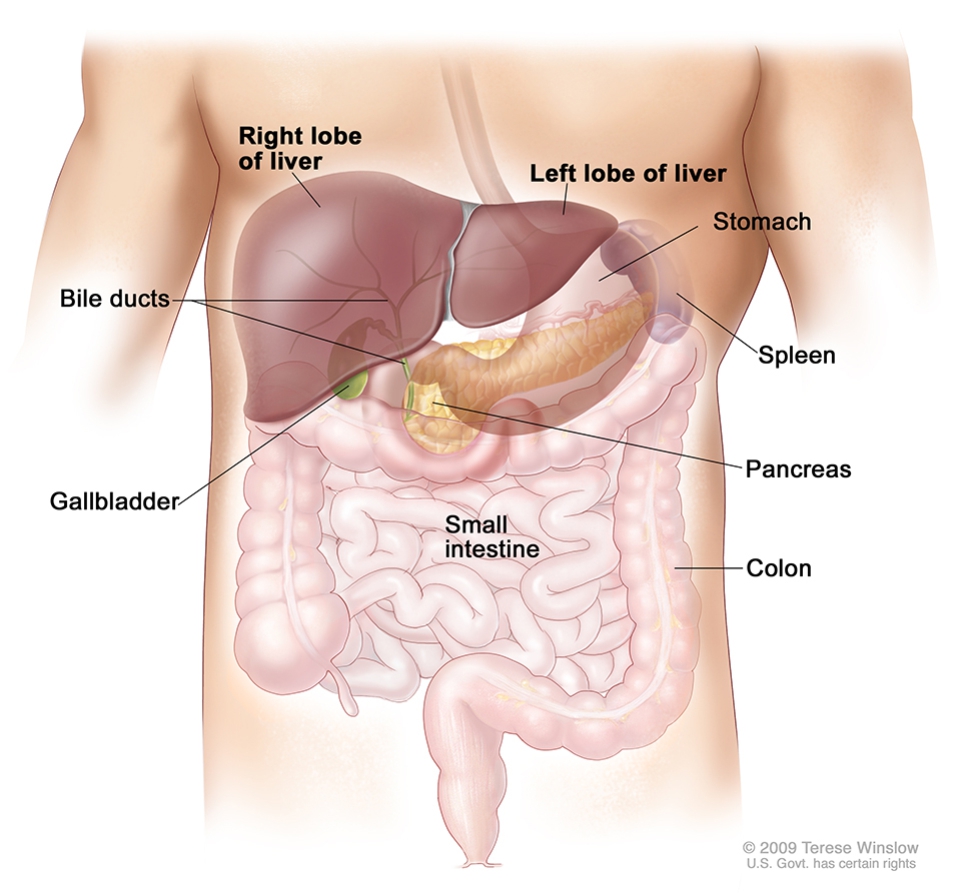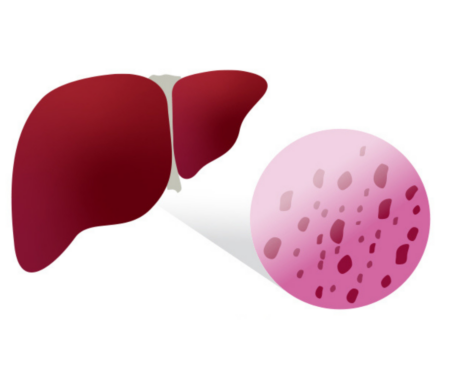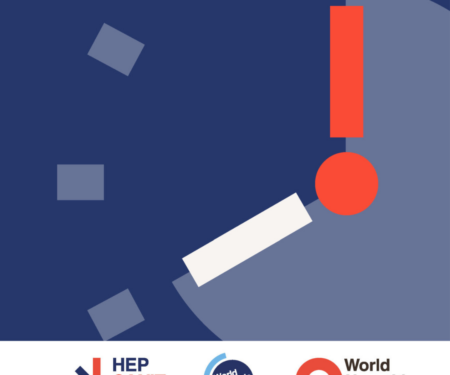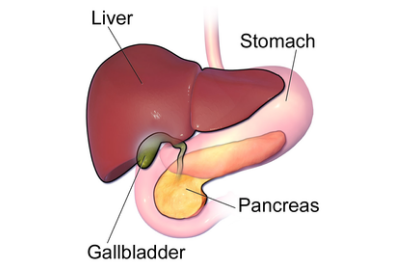Liver Cancer Symptoms and Risks
Cancer is a disease in which cells in the body grow out of control. When cancer starts in the liver, it is called liver cancer. Each year in the United States, about 25,000 men and 11,000 women get liver cancer, and about 19,000 men and 9,000 women die from the disease. The percentage of Americans who get liver cancer rose for several decades but is now declining. Liver cancer is more common in other parts of the world than in the United States.
What Is the Liver?
The liver is located on the upper right side of the body, behind the lower ribs. The liver does many jobs, including—
- Storing nutrients.
- Removing waste products and worn-out cells from the blood.
- Filtering and processing chemicals in food, alcohol, and medications.
- Producing bile, a solution that helps digest fats and eliminate waste products.
What Are the Symptoms of Liver Cancer?
In its early stages, liver cancer may not have symptoms that can be seen or felt. However, as the cancer grows larger, people may notice one or more of these common symptoms. It’s important to remember that these symptoms could also be caused by other health conditions. If you have any of these symptoms, talk to your doctor.
Liver cancer symptoms may include—
- Discomfort in the upper abdomen on the right side.
- A swollen abdomen.
- A hard lump on the right side just below the rib cage.
- Pain near the right shoulder blade or in the back.
- Jaundice (yellowing of the skin and whites of the eyes).
- Easy bruising or bleeding.
- Unusual tiredness.
- Nausea and vomiting.
- Loss of appetite.
- Weight loss for no known reason.
What Causes Liver Cancer?
Behaviors and conditions that increase the risk of getting liver cancer are—
- Being overweight or having obesity.
- Having a long-term hepatitis B virus or hepatitis C virus infection.
- Smoking cigarettes.
- Drinking alcohol.
- Having cirrhosis (scarring of the liver, which can also be caused by hepatitis and alcohol use).
- Having nonalcoholic fatty liver disease (extra fat in the liver that is not caused by alcohol).
- Having diabetes.
- Having hemochromatosis, a condition where the body takes up and stores more iron than it needs.
- Eating foods that have aflatoxin (a fungus that can grow on foods, such as grains and nuts that have not been stored properly).
How Can I Reduce My Risk for Liver Cancer?
You can lower your risk of getting liver cancer in the following ways—
- Keep a healthy weight.
- Get vaccinated against Hepatitis B. The Hepatitis B vaccine is recommended for all infants at birth and for adults who may be at increased risk.
- Get tested for Hepatitis C, and get medical care if you have it.
- Don’t smoke, or quit if you do.
- Avoid drinking too much alcohol.
If you have additional questions about liver cancer, please contact our office to schedule an appointment by filling out the form below.
The information contained in this article is from: https://www.cdc.gov/cancer/liver/index.htm
Digestive Health Specialists, PA is here to help if you, or someone you know, would like more information, or if you are experiencing any digestive health symptoms and would like further evaluation. Feel free to give us a call at 336-768-6211 or fill out the form below.










